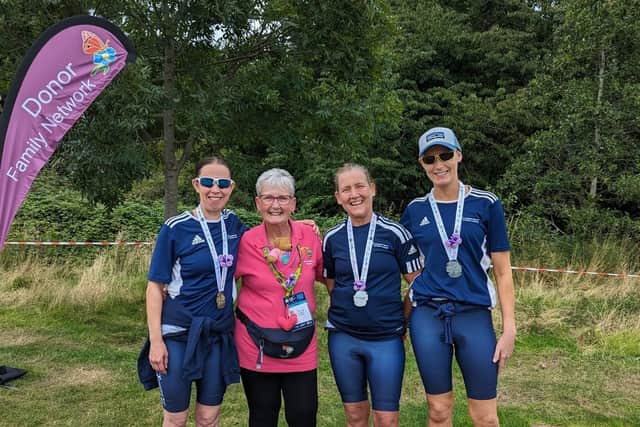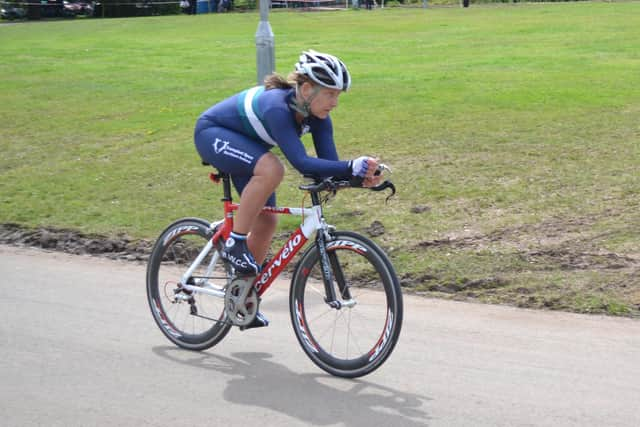Gold and silver success for Coleraine's Kay at British Transplant Games, Coventry 2023
and live on Freeview channel 276
Kay Hack, a stem cell recipient, competed in the 5K cycling time trial, 10K road race, 100m free swimming, and 1500m on the track.
Often referred to as a ‘celebration of life’, the Games have been running for over 40 years, and transplant survivors including children as young as five can compete in more than 25 sports, with many athletes going on to compete at the World Transplant Games.
Advertisement
Hide AdAdvertisement
Hide AdThe Games are also an opportunity to show appreciation for, and remember, organ donors and their families.


Teams from hospitals across the UK come together to compete in a medley of sports over the four-day event. It attracts around 1,000 transplant athletes and more than 1,700 supporters.
This year, 19 transplanted patients from across Northern Ireland attended the Games as part of the Transplant Sport Northern Ireland (TSNI) team. They were supported by a Belfast Health and Social Care Trust staff member who provided medical support to the team, and a massage therapist who himself is a kidney recipient.
This years’ team won 13 gold, nine silver and eight bronze medals. The team ranging in age from 18 to 60+ consisted of eleven kidney recipients, four liver recipients, one heart transplant recipient, and three patients who have had their life transformed through bone marrow/stem cell transplants. The team also had one living donor who competed after donating his kidney to his brother, who also attended.


Advertisement
Hide AdAdvertisement
Hide AdColeraine’s Kay, a member of Bann Wheelers Cycling Club, said: “The Transplant Games embody a profound sense of enablement and gratitude. Around 2,500 participants and supporters demonstrated the power of generosity and hope. United by life-altering gift from organ and stem cell donors – every participant was a winner.” Kay enjoyed great success winning one gold and one silver in cycling.
In June, the law around organ donation in Northern Ireland changed to an opt-out system, known as ‘Dáithí’s Law’. This now means in the event that organ donation is a possibility after you die, it will be considered that all adults agree to being an organ donor unless they choose to opt out or are in an excluded group. The best way to opt out is by registering a decision not to donate on the NHS Organ Donor Register.
Last year in Northern Ireland, 59 families supported the gift of organ donation, which enabled 140 life-saving transplants across the UK. Furthermore, there were 68 living donors in Northern Ireland last year. However, there are around 140 people awaiting a transplant.
The Public Health Agency advises: “You can opt-in, opt-out, or amend your decision at any time on the NHS Organ Donor Register. Once you have done this, it is extremely important to share your organ donation decision with those close to you.
Advertisement
Hide AdAdvertisement
Hide Ad"Should the worst happen, families find the organ donation conversation much easier if they already know what their relative would have wanted. Only a half of families agree to organ donation going ahead if they don’t know their loved ones’ decision, but this rises to 9 out of 10 if the family has had a conversation.”